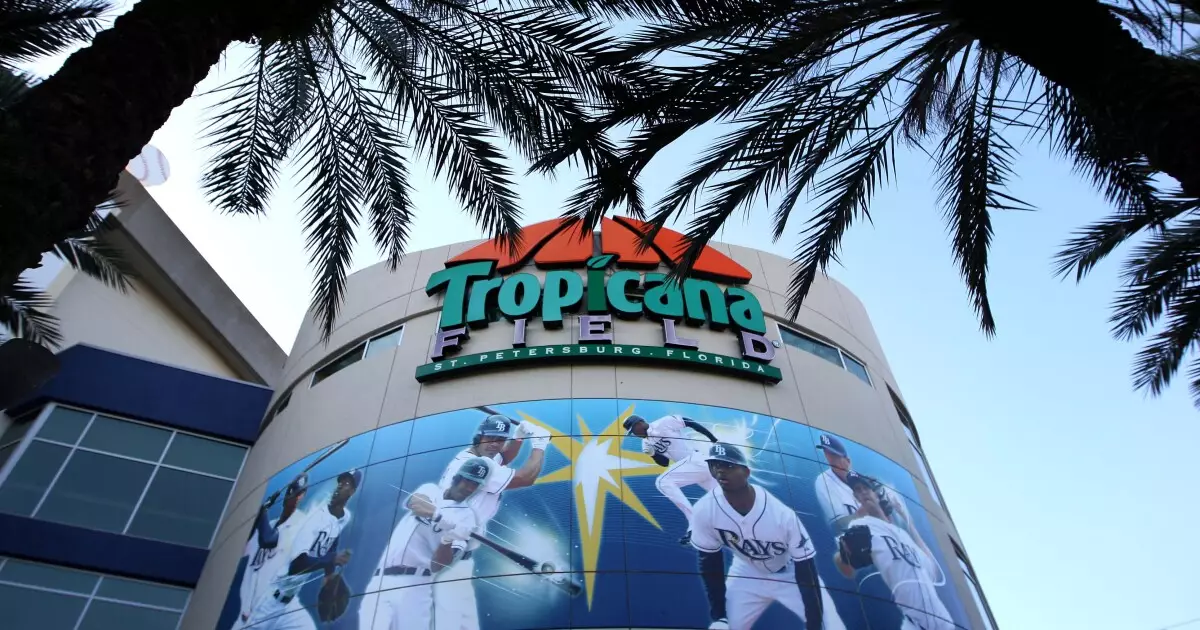Recent developments in Pinellas County highlight a growing rift between local governance and Major League Baseball’s Tampa Bay Rays. As the Rays push for a new financing agreement, tensions have escalated following the Pinellas County Commission’s decision to delay a critical vote on $312 million in bonds intended for a new stadium. The commission’s action has significant implications, especially considering the team’s aspirations for opening a new ballpark by 2028.
In a letter to the county commission, the Rays conveyed their disappointment, emphasizing that missed deadlines and financial hurdles could result in a delayed completion date, pushing for a costly 2029 launch. Given the projected rise in expenses, the stakes are high not just for the team but also for the county, which is grappling with fiscal challenges post-hurricanes. The competitive environment for public funding raises concerns about the viability of a public-private partnership in this case as both sides may struggle to bridge their divergent expectations.
The impact of natural disasters on negotiations has raised serious questions. Following Hurricanes Helene and Milton, which damaged Tropicana Field’s roof, the sentiment within the community remains fraught with uncertainty. The county commission, evident in its 6-1 vote to postpone the bond decision, appears reluctant to commit resources while many residents are focused on ongoing recovery efforts. Comments by Commissioner Chris Sherer, who expressed disappointment over the timing of the Rays’ request, reflect a sense of insensitivity amidst a tumultuous recovery period.
This situation showcases the balancing act that local governments must perform. They must weigh the benefits of supporting a professional sports team—which can stimulate economic development and tourism—against the immediate needs of constituents still dealing with the lingering effects of recent crises. The county’s focus on responsible governance compels a reconsideration of investments that may only benefit a fraction of the community.
The economic arguments about the stadium’s potential benefits are equally nuanced. Proponents, like Commissioner Kathleen Peters, argue that the new stadium will generate sufficient tax revenue to offset costs, bolstering investment in local infrastructure. However, contrary opinions question this narrative. Commissioner Vince Nowicki pointed out that a mere 3% of tourists visit Rays games, raising doubts about whether the anticipated revenue would be substantial enough to warrant such a hefty investment.
These varied perspectives highlight a significant disconnect between the aspirations of the team and the realities faced by local officials. While the Rays’ insistence that they can absorb any cost overruns might suggest a partnership approach, financial projections and community support tell a different story. This discrepancy raises questions about the wisdom of relying on public money to fund sports facilities when a vast majority of local residents may not directly engage with the team.
As the deadline for bond considerations approaches, the implications of the standoff extend beyond just baseball. MLB’s interests hinge on the Tampa-St. Petersburg television market, one of the largest in the nation, and the potential loss of a professional team could trigger larger economic repercussions. With the clock ticking, MLB may have to intervene to mediate the growing discord.
Moreover, the delays surrounding the Rays’ stadium proposal illuminate broader trends in American sports financing. With rising costs for stadium projects, local governments across the country are reassessing how they allocate funds for sporting arenas amid competing demands from various public sectors, such as education and health. The hesitation from Pinellas County may be indicative of a shifting paradigm where the public good takes precedence over professional sports entertainment.
As the Rays navigate their future amid natural disasters and shifting local sentiments, both the team and the Pinellas County Commission must adapt to a new landscape. The decisions made in the coming months will not only shape the future of baseball in Tampa Bay but could also alter the trajectory of public support for sports financing nationwide. As communities evolve, so too must their approach to major investments that fundamentally impact their constituents.


Leave a Reply